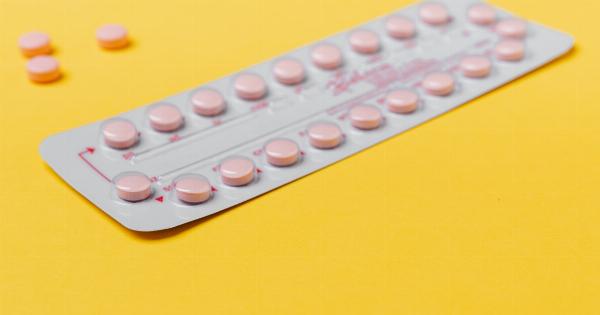Body heat is essential for the normal functioning of the body. Maintaining body heat is crucial for carrying out various activities from digestion to muscle function.
The human body has a complex thermoregulatory system that adjusts the internal temperature to maintain optimal bodily functions. Nutrition plays a critical role in maintaining the body’s temperature as it helps in the production of energy required for generating heat. In this article, we will discuss why nutrition is crucial for maintaining body heat.
What is Body Heat?
Body heat refers to the heat generated by the human body through cellular metabolism. The body’s temperature is regulated by the hypothalamus, a part of the brain that acts as the body’s thermostat.
The hypothalamus responds to changes in temperature by triggering mechanisms that either generate or release heat. These mechanisms include sweating, shivering, dilation or constriction of blood vessels, and changes in metabolic rate. Body heat is essential for maintaining various physiological processes, including digestion, respiration, and muscle function.
The Role of Nutrition in Maintaining Body Heat
Nutrition plays a vital role in maintaining body heat as it provides the body with the energy required for generating heat. The body generates heat through cellular metabolism, where food is broken down to produce energy.
The energy produced is then used to fuel various processes that generate heat, including muscle contractions, digestion, and circulation. To maintain optimal body temperature, the body needs a constant supply of energy, which is obtained from the food we consume.
Carbohydrates and Body Heat
Carbohydrates are an essential source of energy for the body. When carbohydrates are consumed, they are broken down into glucose, which is used to fuel the body’s processes.
Glucose is used to produce ATP (adenosine triphosphate), a molecule that provides energy for cellular metabolism. This energy is used to fuel processes that generate heat, including muscle contractions, digestion, and circulation.
Without an adequate supply of carbohydrates, the body does not have enough fuel to generate heat, leading to a drop in body temperature.
Proteins and Body Heat
Proteins are composed of amino acids, which are essential for various physiological processes, including muscle function, immune system, and enzyme production. Proteins are also a source of energy for the body, albeit a secondary source.
When carbohydrates are not available, the body may break down proteins to produce energy. Like carbohydrates, the energy produced is used to fuel processes that generate heat. However, using proteins as an energy source can have negative consequences on the body, including muscle breakdown and decreased immune function.
Fats and Body Heat
Fats are a rich source of energy for the body. When the body consumes fats, it breaks them down into fatty acids and glycerol, which are then used as a source of energy.
Fats are a preferred source of energy for the body when carbohydrates are not available. The energy produced from fats is used to fuel processes that generate heat, including muscle function, digestion, and circulation.
Additionally, fats also play a critical role in regulating body temperature by insulating the body and reducing heat loss.
Hydration and Body Heat
Water plays a critical role in regulating body temperature. Water is essential for maintaining proper blood volume, which is necessary for circulating blood and delivering oxygen and nutrients to the body’s cells.
When the body is dehydrated, it may have difficulty regulating body temperature leading to a decrease in body temperature. Additionally, water is necessary for sweating, one of the body’s mechanisms for releasing heat. Without adequate hydration, the body may not be able to produce sweat, leading to an increase in body temperature.
Dietary Supplements and Body Heat
Dietary supplements can play a vital role in maintaining body heat. Certain supplements can help the body generate heat, thereby maintaining optimal temperature.
For example, capsaicin, a compound found in chili peppers, can increase the body’s metabolic rate, leading to an increase in body heat production. Additionally, supplements containing herbs like ginger, cinnamon, and turmeric can also help boost the body’s metabolic rate, leading to an increase in heat production.
However, it is essential to consult a healthcare professional before taking any dietary supplements.
Conclusion
Nutrition plays a critical role in maintaining body heat. Carbohydrates, proteins, and fats are essential sources of energy required for the body to generate heat. Adequate hydration is also necessary for regulating body temperature.
Additionally, certain dietary supplements can also help boost the body’s metabolic rate, leading to increased heat production. A balanced diet that includes adequate amounts of carbohydrates, proteins, and fats, along with proper hydration, is essential for maintaining optimal body temperature.






























